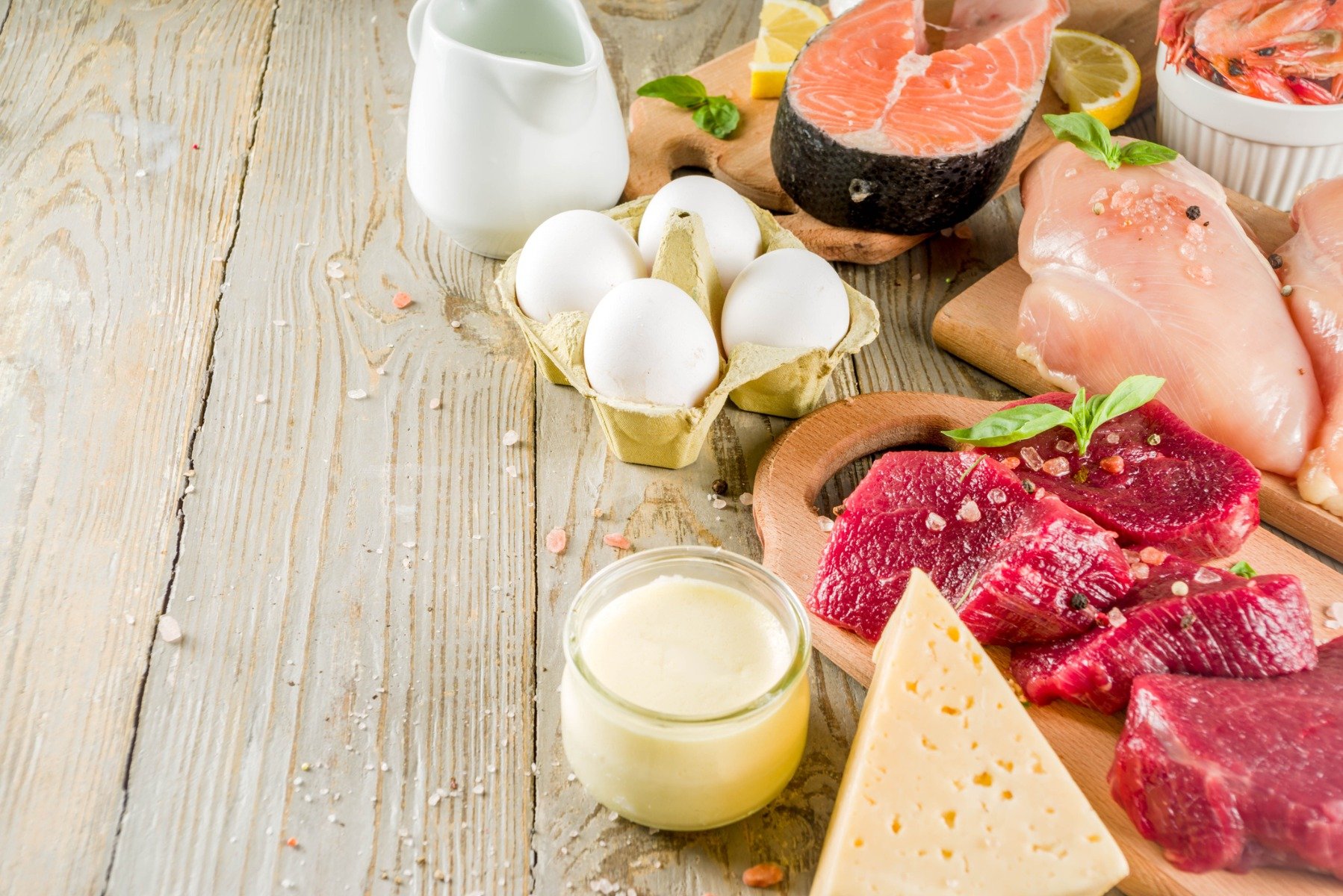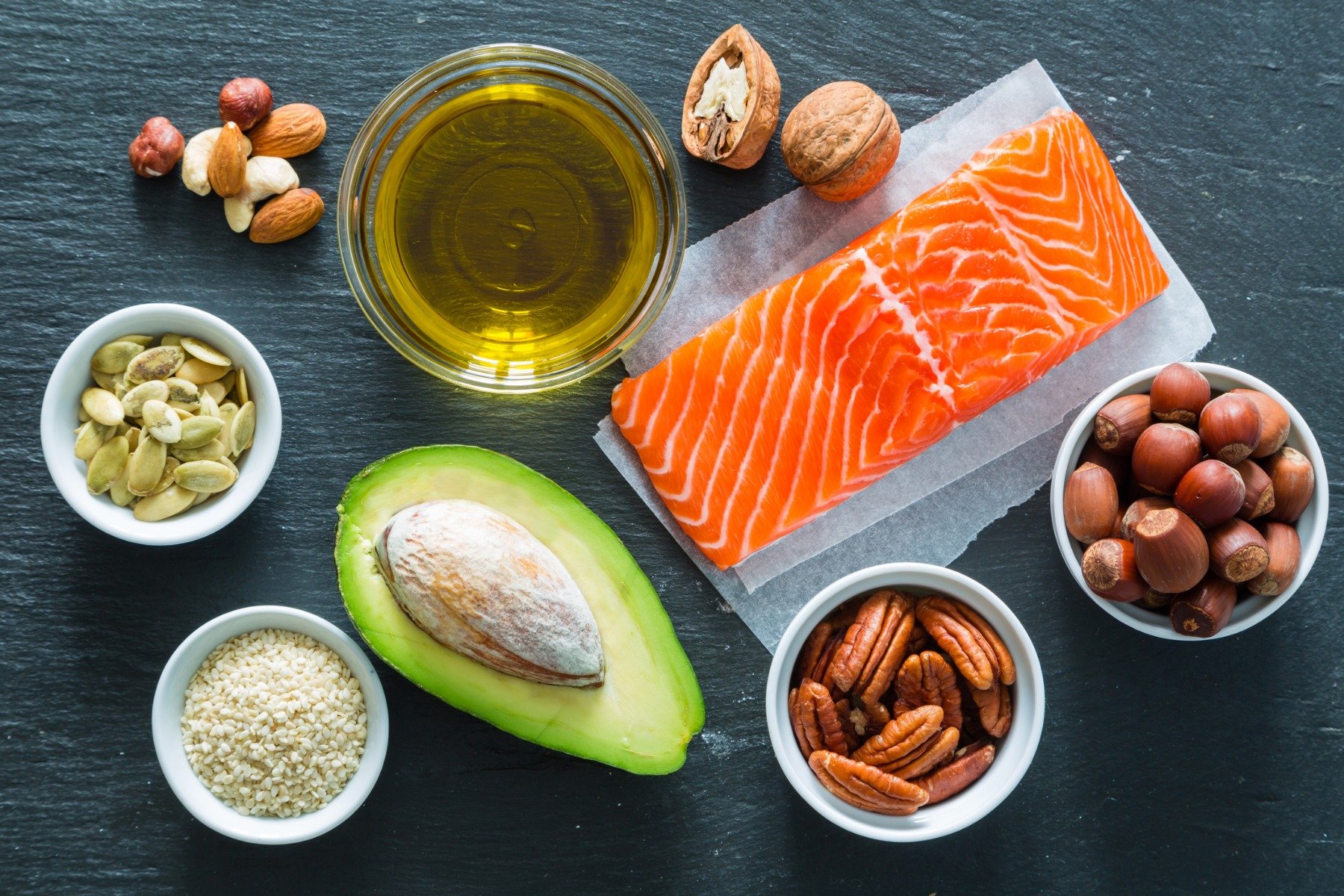Table of Contents
It has been a few weeks since you started exercising and eating healthy food, but you still can’t see the results. You nervously control weight, count calories, but no change is happening. We understand you, weight loss is a really demanding and lengthy process. Therefore, avoid the most common mistakes you may have when losing excess kilograms. Read our 7 tips to find the cause of your failure and finally reach your fitness goal.
1. You forget to keep hydration
When we talk about lifestyle changes, we often think only about a healthy diet. People focus on what they eat, but they often forget about getting enough water. Insufficient hydration reduces the amount of fluid in the stomach and subsequently mistakenly considers it to be hungry. Thus, the feeling of hunger can be caused by thirst in the absence of water. Therefore, if you are hungry, try to drink water first, wait 20 minutes and see if your hunger was not only thirst in disguise.
A 2014 research showed that drinking water before meals also reduces appetite. Researchers drank 0.5 litres of water before breakfast, lunch and dinner. As a result, they experienced loss of weight, body fat and appetite. [2] [3]

Choose appropriate fluids
Don’t you forget that not all drinks are calorie-free? Many of them have a natural carbohydrate content or are supplemented with added sugar. Therefore, the amount of carbohydrates and sugars must always be checked on the label to know how much “unnecessary calories” you will receive.
This also applies, for example, to 100% fruit juices that many people tend to drink in the morning. 100% juice is a good source of vitamins and other nutrients, but it also contains sugar and is therefore not low-calorie.
Looking at apple juice compared to a cola-type sweet drink, the results are really surprising. Apple juice has 9.6 g of sugar per 100 ml and cola drink only 9 g of sugar. These values can be found in the table. [4] [5]
| 100 ml | 9,6 g | 9,0 g |
| 0,5 l | 48 g | 45 g |
| 1 l | 96 g | 90 g |
Excessive drinking of juice can, as with sweetened drinks, lead to weight problems. [1] Of course, juice is not a junk drink. However, it is important to reduce sugar intake during weight loss, so you should not overdo it even with 100% fruit juices.
Beware of alcohol
You don’t sweeten your coffee and tea, you don’t drink calorie drinks, but you like a glass of beer or wine in the evening. Are you still wondering why you won’t lose weight? Alcohol does contain a lot of calories, for example, large beer has 180 calories and a glass of red wine around 140 calories. Imagine drinking 4 glasses of beer on Saturday night. You don’t even know how but you’ve received 720 extra calories. So be careful about how much alcohol you consume, or consider removing it completely from your diet. [6] [7]
For a more detailed overview of the calorie content of alcoholic beverages, see the table. [17]
| Gin (4 cl) | 88 |
| Rum (4 cl) | 88 |
| Whiskey (4 cl) | 88 |
| White dry wine (2 dl) | 130 |
| Red wine (2 dl) | 140 |
| Champagne (2 dl) | 252 |
| Cider (0,5 l) | 200 |
| Beer (0,5l) | 180 |

2. You eat to fast
A hectic time and a number of responsibilities reduce people’s time to eat. We have been in a hurry since early morning and we have no time to dine in the evening. Eating food too fast is not only annoying but also harms our health. When you eat quickly your body will not be able to send a signal to the brain that you are starting to feel satiated. The brain needs information from the stomach, as well as instructions from hormones that partially digested food already travels through the digestive tract. These processes usually take 15 to 20 minutes. [8]
A study in Japan examined three groups of people over a period of 5 years. The subjects ate fast, at normal pace and slowly. 11.6% of people who ate fast had a predisposition to developed metabolic syndrome. The results in the other groups were significantly lower. People who ate at normal pace had a predisposition of 6.5% and those who ate slowly only 2.3%.
Metabolic syndrome is not the disease itself, but a group of risk factors that lead to the disease. These include obesity, high blood pressure, increased levels of “bad” fats and blood sugar. The occurrence of one of the above-mentioned factors can be considered as this syndrome. Combining multiple options further increases the risk of other diseases. However, the positive thing is that you can get the metabolic syndrome under control. However, this requires a sharp change in lifestyle. [8] [9] [20]

Workload and a quick way of life are the reason we eat too fast and stop dining. Eating at normal pace is not only time to enjoy food, but also an opportunity to prevent serious illnesses. Start eating at the table and without stress or time pressure.
You might be interested in these products:
3. You sleep less than 6 hours
A person cannot function fully if he or she does not get enough sleep. Our body needs time to regenerate. You may be surprised but sleep also affects weight loss through the hormones leptin and ghrelin. Leptin is a “satiety hormone” and ghrelin can be called a “hunger hormone”. In the absence of sleep, our leptin levels drop, and our body produces more ghrelin. As a result, we feel hungry. [10]
Research from 2019 looked at the effects of sleep on weight loss. The aim was to measure the decrease in waist circumference during sleep. The sample consisted of two groups. Participants in the first group slept for less than 6 hours and people in the second group slept for 7 to 9 hours. The research results were unambiguous. Lack of sleep affects the amount of fat we burn at night. [11]

Research has also shown a link between sleep deprivation and food choice. The study revealed that people with a lack of sleep eat more often at night and choose a meal with a higher carbohydrate content. Another study explains the choice of meals based on the fat content. Participants suffering from sleep deprivation chose meals with twice as much fat than participants sleeping for at least 8 hours. [12]
4. You have removed fats from your diet
Fat is generally considered to be an undesirable substance from which one simply gains weight. However, there are several types of fats. Some of them are healthy and our body needs them to function properly. Therefore, you cannot avoid them in the diet. In the human body, fats are a nutrient that supplies energy, with 1 gram of fat containing 9 calories. Our body needs them because of the absorption of vitamins A, D, E and K. Fats are divided into two basic types – saturated and unsaturated. In the diet we usually accept both species, but in different proportions. [18]
Saturated fats
They can be recognized by their solid state at room temperature. A high intake of these fats increases the level of “bad” cholesterol, causing a risk of heart disease. The term saturated is used because all fat molecules are saturated with hydrogen atoms. Saturated fats can be found in:
- animal products – meat, milk and cheese
- tropical oils – palm oil, coconut oil, coconut butter
Tropical oils can be found in many products. In particular, palm oil is an ingredient in a variety of delicacies and foods. Saturated fats are also found in food prepared on butter or margarine, such as desserts and cakes. [18] [19]

Unsaturated fats
Unlike saturated fats, unsaturated fats are not solid at room temperature. They come mainly from vegetable oils and are among the so-called “good” fats that improve cholesterol levels in the body. We can divide them into two basic types [18] [19] [21]:
- monounsaturated fats – they contain one double carbon bond and are found in olives, olive oil, nuts and avocados. Higher consumption of these fats, however, without reducing the intake of saturated fats, will not cause a decrease in LDL cholesterol levels. Monounsaturated fats also include omega-9 fatty acids found in seed and vegetable oils.
- polyunsaturated fats – this type of fat is very beneficial to health. They can be found, for example, in sesame, sunflower, soybean or corn oil. It is also the main type of fat in seafood and fish. Polyunsaturated fats include:
- omega-3 fatty acids – they lower cholesterol and are beneficial in skin diseases, arthritis and joint pain. You can get them from fish like salmon, sardines, or trout. They are also found in soy and rapeseed oil, nuts, or flax seeds.
- omega-6 fatty acids – they have anti-inflammatory effects and are present in vegetable oils, such as soybean or corn oil.

Trans fats
Trans fats are industrially prepared and are not found in nature. They are produced by a hydrogenation process, by adding hydrogen to liquid vegetable oils to achieve a solid state at room temperature. Delicacies containing trans fats are firmer and have a crisper crust. They include [18] [19]:
- salad dressings
- biscuits and various delicacies
- processed food
- cakes, pastries, pizza dough and chips
This type of fat is not beneficial to the body. Its consumption increases the level of “bad” LDL and lowers the level of “good” HDL cholesterol. The risk of heart disease is three times higher when consuming trans fats than other fats. [19]
Only unsaturated fats are required for our body to function. Saturated and trans fats can cause serious illness by excessive consumption. You should control their income. When buying food, it is important to control the composition of the food and to differentiate the content of “good” and “bad” fats in the food.
5. You do not read food labels
Do you choose foods according to their packaging or composition? Product labels should not be overlooked as they contain a list of ingredients and their quantity in the product. However, due to the distinctive inscriptions and slogans on the front as “healthy, natural, low-fat”, we often forget to check the real composition of the food. This is important because the word “healthy food” does not guarantee that it is a truly healthy product. You might be surprised of how many foods have better advertising and packaging than the ingredients. Labels with the phrase “fat-free” can hide a high proportion of sugar, salt or calories. Therefore, it is always important to take the effort and read the detailed composition of the product on the back of the package. [1] [2]

Product content is important for all of us, but especially for people who are trying to lose weight. These are the most important components you should notice [1] [13] [24] [25]:
- carbohydrate and added sugars content – carbohydrates and sugars are not the same, because manufacturers sometimes include starch and dietary fibre into carbohydrates. The sugars include natural, milk, fruit and also added sugars. It is this food ingredient that significantly increases caloric intake, so it is important to monitor how much of the carbohydrate is sugar
- fats – as we mentioned above, not every fat is good for health. It is advisable to note the total amount of fats and the proportion of saturated fats. Saturated fats lower the level of “good” HDL cholesterol in the body and are only suitable in small amounts
- fat content in meat – when buying meat and meat products, it is necessary to observe the ratio of “pure” meat to fat. Low levels of animal fat are beneficial for the body, but excessive consumption of saturated fat carries some risks. It increases the level of “bad” cholesterol, leads to obesity and can cause cardiovascular diseases.
6. You exercise too much
In order to speed up the weight loss process, many people exercise as much as possible and therefore add series, exercises and training days. However, you should be patient when losing weight. Suppose you have changed your eating habits and are holding a calorie deficit. Also, if you rapidly increase the number of workouts, you add an additional stressor to your body, causing you to become too tired and weak. [14]

The 2015 study also points to better health for people doing moderate jogging. Adequate cardio training can also improve the level of “good” HDL cholesterol, blood pressure and triglycerides at appropriate intensity and length.
The opposite is the case with top athletes. According to the study, there is an increased risk of arterial plaque formation in marathon runners, which causes narrowing and poor vascular patency. Endurance athletes have 5 times greater risk of atrial fibrillation, a major risk factor for stroke. [15]
Intensive and regular training is a way to prevent disease and keep the body in good shape. Too many workouts can weaken your body and trigger exactly the opposite reaction. So do not forget about “too much of a good thing” rule and rely better on the quality and regularity of training rather than the quantity of workouts.
7. You don’t consume enough protein
Sufficient protein intake is very important during weight change. The study pointed out that protein increases the feeling of satiety as it lowers the level of hunger hormone – ghrelin. Proteins are also an essential building block of our muscles and provide muscle growth. Stronger muscles mean more strength and energy to exercise, and therefore more energy to burn fat. [16]
More muscle mass is not the only reason why proteins help speed up the weight loss process. Higher doses of proteins accelerate metabolism. Our metabolism works 24/7 and thanks to the high intake we start to burn more, even while sleeping. According to the results of the studies we can increase the number of calories burned by up to 80 – 260 calories. This is due to a phenomenon called the thermic effect of food. Our metabolism responds to food intake by increasing energy expenditure through processes such as digestion, nutrient absorption, or their storage. Compared to other nutrients, protein has a stronger thermic effect of 20-30%, which is 5-10% by carbohydrates and only 0-3% by fats. [22] [23]
Do you want to learn more about protein and its use? Read our article – When and how many proteins to take for maximum results?

We believe that following these tips will help you achieve your fitness goals quickly and efficiently. The key is a balanced diet, plenty of fluids and relaxation. Remember that a sophisticated lifestyle change is more effective than a quick diet. However, health is a sufficient motivation to change lifestyle. Good luck with that! If you’d like your friends to know about this article, don’t hesitate to support it by sharing.
[1] Franziska Spritzler - 15 Common Mistakes When Trying to Lose Weight – https://www.healthline.com/nutrition/weight-loss-mistakes
[2] Jaime Osnato - 10 of the Most Common Weight-Loss Mistakes – https://www.livestrong.com/article/13717207-most-common-weight-loss-mistakes/
[3] Kimberly Holland - Biggest Mistake Dieters Make? Not Enough Water – https://www.healthline.com/health-news/biggest-mistake-dieters-make-not-enough-water
[4] Apple juice, canned or bottled, unsweetened, without added ascorbic acid – https://nutritiondata.self.com/facts/fruits-and-fruit-juices/1822/2
[5] Carbonated beverage, cola, contains caffeine – https://nutritiondata.self.com/facts/beverages/3986/2
[6] Aaron Kandola - Possible reasons weight loss is not working – https://www.medicalnewstoday.com/articles/324836.php
[7] Beer – https://www.fatsecret.com/calories-nutrition/generic/beer?portionid=1136985&portionamount=500.000
[8] Luisa Dillner - Is eating too quickly bad for your health? – https://www.theguardian.com/lifeandstyle/2017/nov/20/is-eating-food-too-quickly-bad-for-health
[9] David Nield - Eating Too Fast Can Lead to Several Health Problems, Study Shows – https://www.sciencealert.com/quick-eating-bad-for-waistline-heart-health
[10] 11 Common Mistakes People Make When Trying to Lose Weight – https://brightside.me/inspiration-health/11-common-mistakes-people-make-when-trying-to-lose-weight-485710/
[11] Maria Cohut - Poor sleep may hinder weight loss, study shows – https://www.medicalnewstoday.com/articles/325629.php
[12] Sleep More, Weigh Less – https://www.webmd.com/diet/sleep-and-weight-loss#1
[13] Cassie Shortsleeve - 6 Label-Reading Mistakes to Avoid, According to RDs – https://www.eatthis.com/nutrition-label-mistakes/
[14] Jason Helmes - 5 Weight-Loss Sins Everyone Makes (And How To Fix Them!) – https://www.bodybuilding.com/fun/5-weight-loss-sins-everyone-makes-and-how-to-fix-them.html
[15] K. Aleisha Fetters - How Much Cardio Is Really Good for Your Heart? – https://health.usnews.com/wellness/fitness/articles/2017-05-05/how-much-cardio-is-really-good-for-your-heart
[16] Kris Gunnars - 10 Science-Backed Reasons to Eat More Protein – https://www.healthline.com/nutrition/10-reasons-to-eat-more-protein
[17] Number of Calories in Alcoholic Drinks Chart – https://www.disabled-world.com/calculators-charts/alcohol-calories-chart.php
[18] Types of Fats – https://www.healthlinkbc.ca/health-topics/aa160619
[19] Natalie Butler - Can fat be good for you? – https://www.medicalnewstoday.com/articles/141442.php
[20] What Is Metabolic Syndrome? – https://www.webmd.com/heart/metabolic-syndrome/metabolic-syndrome-what-is-it#1
[21] Ruairi Robertson - Omega-3-6-9 Fatty Acids: A Complete Overview – https://www.healthline.com/nutrition/omega-3-6-9-overview
[22] Dominik H Pesta, Varman T Samuel - A high-protein diet for reducing body fat: mechanisms and possible caveats – https://www.ncbi.nlm.nih.gov/pmc/articles/PMC4258944/
[23] Kris Gunnars - How Protein Can Help You Lose Weight Naturally – https://www.healthline.com/nutrition/how-protein-can-help-you-lose-weight
[24] 7 Common Nutrition Label Mistakes to Avoid – https://skinnyms.com/7-common-nutrition-label-mistakes-to-avoid/
[25] Learning To Read Labels – https://dtc.ucsf.edu/living-with-diabetes/diet-and-nutrition/understanding-carbohydrates/counting-carbohydrates/learning-to-read-labels/


Add a comment